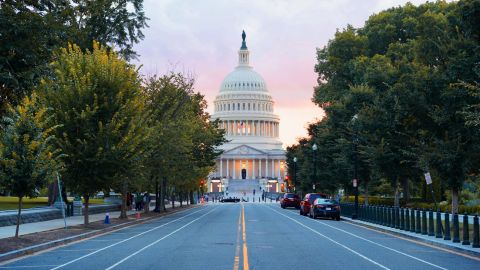How is COVID-19 affecting
NIH research?
To help explain the impact of COVID-19-related interruptions to research at the National Institutes of Health, the American Society for Biochemistry and Molecular Biology hosted a webinar with Michael Lauer, deputy director for Extramural Research at the NIH and Jodi Black, deputy director of the NIH Office of Extramural Research.

Lauer and Black both said that the NIH is doing everything it can to be an aid and resource to scientists during this pandemic. Below are the key takeaways from the webinar, which can be watched here.
Funding mechanisms and grant extensions
-
The NIH has no plans to extend the May 1 deadline for grant applications. However, the standard late application policy remains in place, which allows an investigator to request a two-week deadline extension by submitting a cover letter with their application.
-
If a grant recipient wants to rearrange the funds in their budget to cover unintended costs or shift resources, they need prior approval from their program official.
-
If a grant recipient’s lab instruments are damaged because they had to shut down their labs due to COVID-19, the recipient can request an administrative supplement. The recipient must contact their program official for advice on when to apply for such a supplement.
-
Training grant funding can be used to support predoctoral and postdoctoral candidates for a longer period than stipulated in the original grant. More information about this can be found in the NIH’s FAQ section.
Supporting early-stage and junior investigators
-
The NIH has implemented maximum telework for early-stage investigators/junior investigators who are affected by COVID-19, giving them more flexibility to work from home.
-
The NIH recommends that recipients of early-stage investigator awards apply for extensions if the grant time period is coming to an end in the near future to prevent any lapse in funding. Grant recipients should apply for an extension even if their institution remains closed.
Continuing to pay staff with NIH grant funds
- NIH grant funds can be used to pay researchers' salaries if the grant recipient’s institution has policies allowing that.
- If a staff person on an NIH grant is pulled away to work on COVID-related efforts that are not supported by NIH funding, a hold must be put on the research grant funding for that staff member.
NIH officials understand that the unprecedented circumstances of the COVID-19 pandemic are hindering scientific research, Lauer said.
“Everybody is in the same boat,” he said. “All the federal funding agencies are doing their best to be accommodating and as flexible as possible. We all have, as our top priority, to support the next generation of researchers.”
Enjoy reading ASBMB Today?
Become a member to receive the print edition four times a year and the digital edition monthly.
Learn moreGet the latest from ASBMB Today
Enter your email address, and we’ll send you a weekly email with recent articles, interviews and more.
Latest in Policy
Policy highlights or most popular articles

Building a stronger future for research funding
Hear from Eric Gascho of the Coalition for Health Funding about federal public health investments, the value of collaboration and how scientists can help shape the future of research funding.

Councilors advocate for science on Capitol Hill
ASBMB Councilors meet with their elected officials to advocate for basic scientific research funding and training the next generation of scientists.

Hope for a cure hangs on research
Amid drastic proposed cuts to biomedical research, rare disease families like Hailey Adkisson’s fight for survival and hope. Without funding, science can’t “catch up” to help the patients who need it most.

Supporting science through advocacy and community building
ASBMB calls on scientists to take action as funding cuts and policy shifts threaten the U.S. research enterprise, emphasizing the power of community advocacy and persistence in protecting the future of science.

Seven steps to advocating in your home state
Find out how to schedule, prepare for and conduct a productive district office meeting to communicate the importance of fundamental scientific research funding to your representatives.

ASBMB members call for funding and agency support amidst uncertainty
In 60 meetings on Capitol Hill, scientists urge legislators to reaffirm support for scientific innovation

